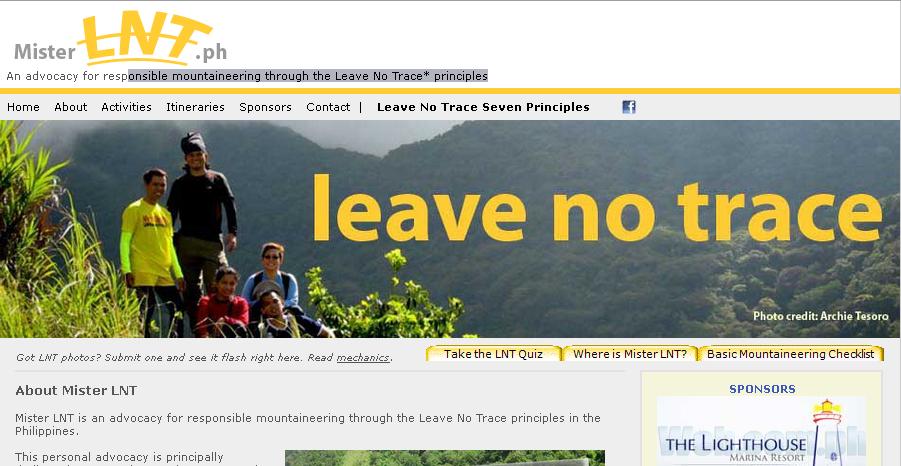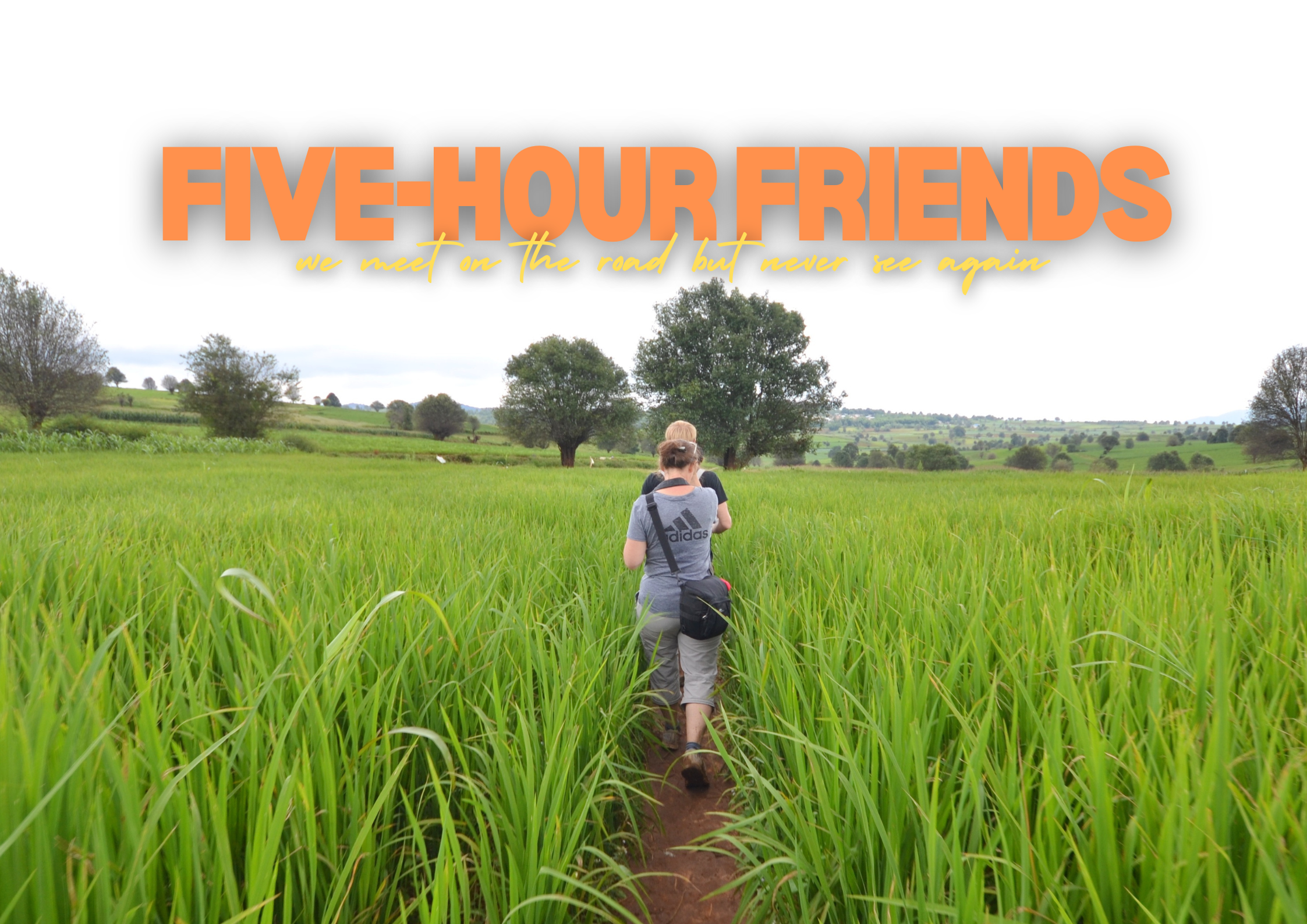Take nothing but pictures. Kill nothing but time. Leave nothing but footprints. This is the adage being used by every responsible outdoor enthusiast like mountaineers and travelers to conserve Mother Nature. The adage was revised by the Leave No Trace Center for Outdoor Ethics to come up with 7 principles as bases on how to enjoy the outdoor responsibly.
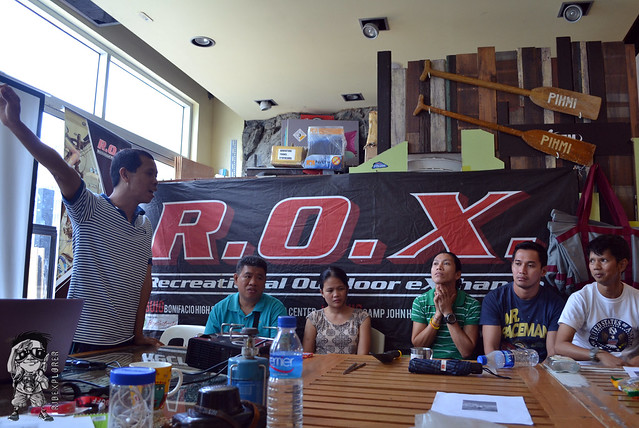
For the dissemination of these principles in the Philippines, Mister LNT, or Lito in real life, conducts seminars and activities inviting outdoor enthusiast to discuss and educate them about the said principles. Last July 6, I was invited to join one of the lectures happened in ROX Philippines Bonifacio High Street in BGC.
The said seminar started around 12:30PM and ended around 4PM. The basic objective of the lecture is to discuss the principles one by one and bring issues to the table related to the principles and share some solutions to be done.
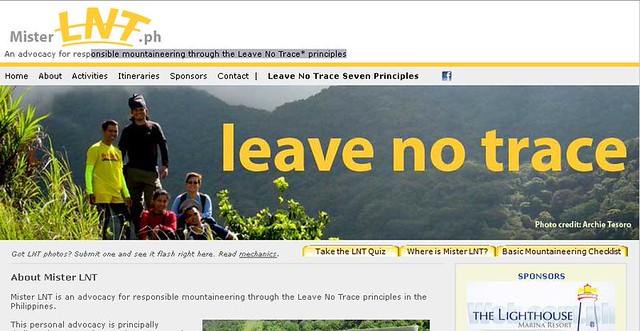
Seven Principles of Leave No Trace
Plan Ahead and Prepare
Planning before a travel/climb plays a very important role. It is where you need to anticipate every scenario that may happen during the trip. This will also help you to know the regulations and special concerns needed in the area you’ll visit. Aside from it, having an itinerary will save you time and money in getting around the area.
Travel and Camp in Durable Places
This only applies on mountaineers. It was advised that in camping, it is better to camp on established campsites. However, for pristine areas, it is better to have a disperse campsites for you not to create and establish a campsite.
Dispose Waste Properly
It is one of the most important rules in traveling. I’ve been to some places in our country and waste by visitors/travelers were scattered around the area. What you bring in, you bring it out. For climbers, it was also discussed that human waste should be deposited under the ground with 6-8 inches deep and at least 200 feet away from water, camp and trails.
Leave What You Find
Whatever you find in the area, leave it as it is. Don’t get rocks, sands, and natural objects as souvenirs. Also, avoid vandalizing in rocks and branches of trees just to engrave your name and indicate that you were there.
Minimize Campfire Impacts
If ever the weather is cold, it is not necessary to build a fire. You can bring your jackets to lessen the chilling feeling. If campfire is really needed, make it small and only use sticks that can be broken by hand. Before leaving the campsite, make a cold test to the area of the campfire to ensure that there was no heat left on the ground.
Respect Wildlife
We should always remind ourselves that we are only visitors in the natural habitat of animals if ever we have climbs/travels. Don’t ever try to harm wild animals or transport them to different areas. Minimize using flash in taking pictures with the animals because it may harm them.
Be Considerate to Other Visitors
Keep in mind that you’re not only the visitor in the area. If ever you tend to have drinking sessions, minimize loud voices and noise on your group for you not to disturb others who want total silence. For mountaineers, in taking a break, don’t stop in the middle of the trails because you may block other climbers.
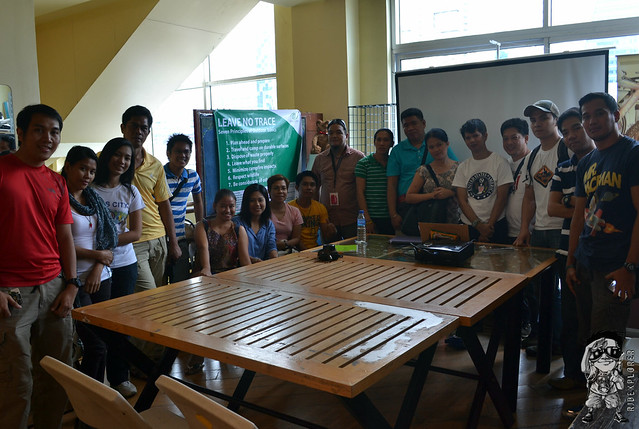
For in-depth explanations of the principles, you may check out the website of Mister LNT at www.misterlnt.ph.
Overall, what I’ve learned from the talk of Mister Lito is to be a responsible traveler/climber. The place is not ours and it is our duty to protect it and we can enjoy the place more if we abide by the Seven Principles discussed above. For everyone who wants to support the advocacy of Mister LNT, you can contact them via their website and be part of the group with a vision and mission of protecting Mother Nature.

